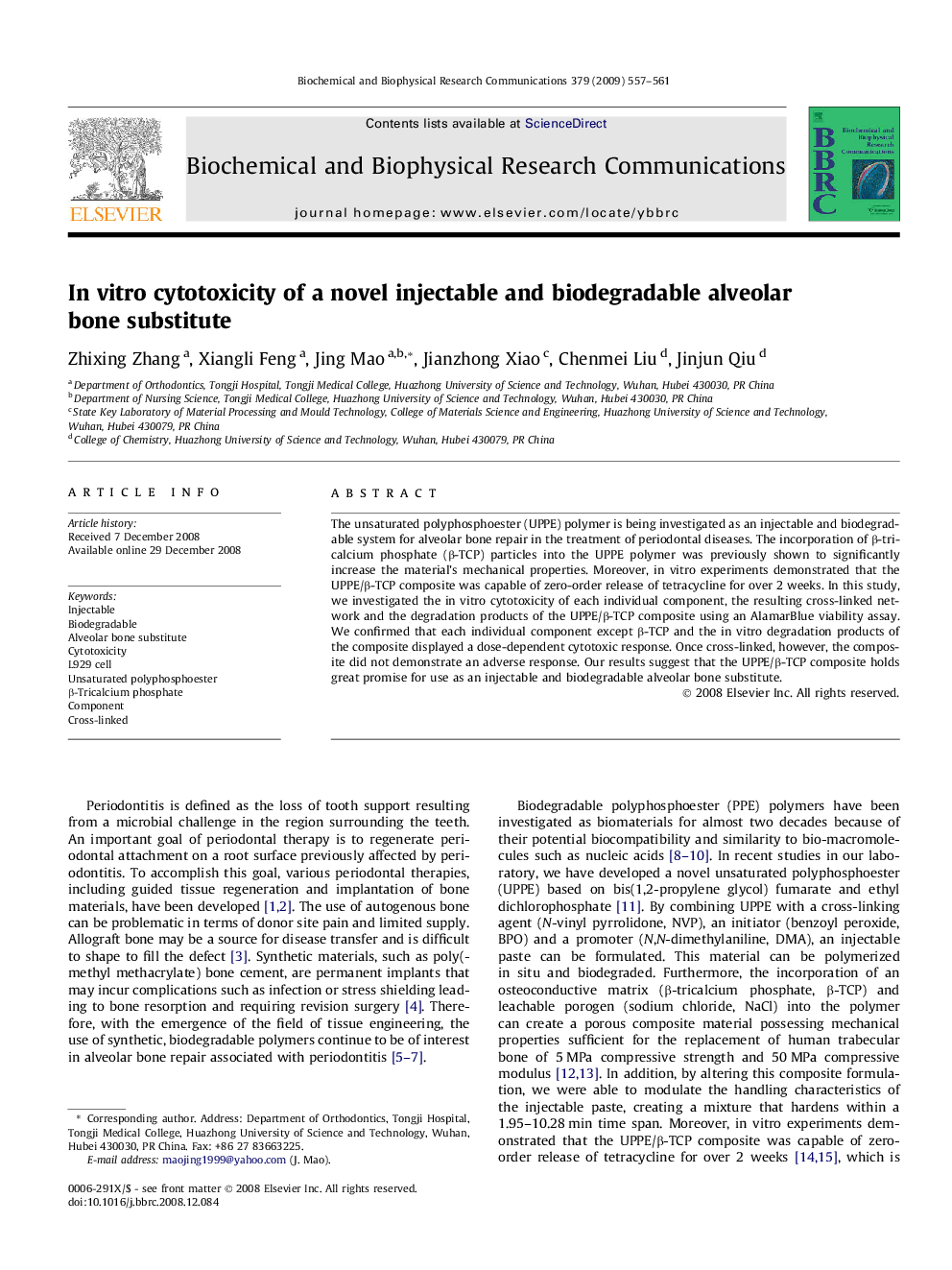| Article ID | Journal | Published Year | Pages | File Type |
|---|---|---|---|---|
| 10766496 | Biochemical and Biophysical Research Communications | 2009 | 5 Pages |
Abstract
The unsaturated polyphosphoester (UPPE) polymer is being investigated as an injectable and biodegradable system for alveolar bone repair in the treatment of periodontal diseases. The incorporation of β-tricalcium phosphate (β-TCP) particles into the UPPE polymer was previously shown to significantly increase the material's mechanical properties. Moreover, in vitro experiments demonstrated that the UPPE/β-TCP composite was capable of zero-order release of tetracycline for over 2 weeks. In this study, we investigated the in vitro cytotoxicity of each individual component, the resulting cross-linked network and the degradation products of the UPPE/β-TCP composite using an AlamarBlue viability assay. We confirmed that each individual component except β-TCP and the in vitro degradation products of the composite displayed a dose-dependent cytotoxic response. Once cross-linked, however, the composite did not demonstrate an adverse response. Our results suggest that the UPPE/β-TCP composite holds great promise for use as an injectable and biodegradable alveolar bone substitute.
Related Topics
Life Sciences
Biochemistry, Genetics and Molecular Biology
Biochemistry
Authors
Zhixing Zhang, Xiangli Feng, Jing Mao, Jianzhong Xiao, Chenmei Liu, Jinjun Qiu,
